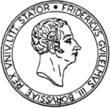On the coming Dies Academicus, the Arithmeum will offer guided tours and an evening lecture:
11:00 a.m. From Leibniz to Müller – binary arithmetic in early reckoning methods
Binary numbers are ubiquitous in the computer age. But scientists and constructors of mechanical calculating machines in times gone by also worked on the representation of numbers by means of zeros and ones. They were well aware of the advantages to be gained thereby. But most of their endeavours in this direction remained theoretical. A working model of the binary "ball" calculator of Leibniz was built in the Arithmeum in accordance with his plans. The constructor of mechanical calculating machines Johann Helfrich Müller incorporated the option of working with binary numbers into his calculator. This guided tour will take the visitor on a trip demonstrating the development of the use of binary numbers through time.
1:00 p.m. How is a computer chip made?
It is a long way from the design of a chip to the finished microprocessor. A short walk into the world of nanotechnology will visit various stations of this process.
3:00 p.m. Geometric-constructivist art from the Arithmeum Collection
Science and art have many facets in common – in the Arithmeum, artefacts from these two totally different realms of human creativeness meet on an aesthetic level. The Arithmeum Art Collection, which specializes in geometric-constructivist art, is today one of several larger collections in Europe specializing in this field. The Arithmeum presents an exhibition of pictures from Albers to Vasarely, which is representative of the range of the Collection. A guided tour of this exhibition will not only acquaint the viewer with the artists' works but also with the acquisitions policy of a university art collection.
6:15 p.m. Information Society – Quo Vadis?
Lecture by Professor Dr. Bernhard Korte (see earlier announcement)Entry is free on the Dies Academicus.






